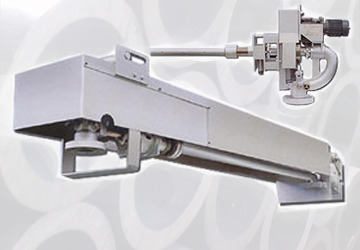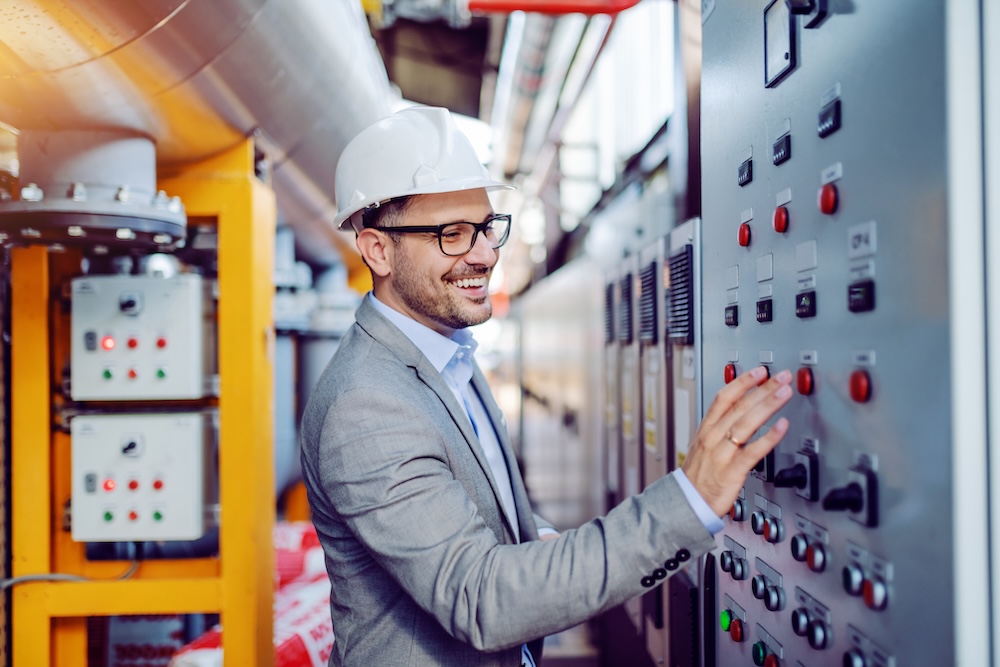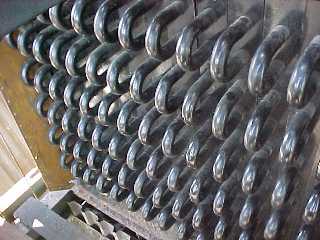
The Ultimate Guide to Sootblower Replacement Parts
Sootblowers are essential components of industrial boilers. Just like the name implies, they can remove soot and ash buildup from a boiler’s heat exchange surfaces.
Home » Investing in High-Quality Industrial Boilers for Long-Term Savings
From manufacturing to energy production, the industries that make the world move rely on boilers as the backbone of their systems. Your choice of boiler can significantly impact your operational efficiency and financial health.
High-quality, high-efficiency boilers offer substantial long-term savings on industrial and even home scales. They are a worthy investment for any industry that relies on steam or hot water for its systems to operate correctly.
Here’s why it’s worth a higher upfront cost to reap the benefits of a quality boiler’s higher efficiency.
High-efficiency industrial boilers are often a significant investment. Opting for higher-quality models lays the foundation for more reliable operation, safety, and regulation compliance.
High-quality boilers are built to withstand the rigors of industrial use, offering durability and reducing the frequency of expensive repairs and downtime. Lesser-quality boilers, while more affordable upfront, can lead to higher maintenance costs, energy inefficiency, and a shorter lifespan, ultimately costing more over time.
Despite higher initial pricing, high-efficiency boilers bring down costs in the long term. They save money in many ways and offer a path toward a more optimal production process.
High-efficiency boilers convert a higher percentage of fuel into usable heat. For instance, a 95% efficiency rating boiler converts 95% of the fuel energy into heat, compared to an 80% efficiency boiler, which wastes 20% of the power. This translates into significant fuel savings over the boiler’s lifespan.
These boilers are designed with advanced technology, often including self-cleaning mechanisms and advanced diagnostics. This reduces the frequency and cost of maintenance while minimizing downtime.
Energy-efficient boilers are typically built with higher-quality materials and better engineering, ensuring a longer operational life. This means less frequent replacements and a better return on investment.
High-efficiency boilers produce fewer emissions, helping companies comply with environmental regulations. Avoiding fines and penalties also contributes to longer-term savings.
Many utility companies and government offices present financial perks, rebates, or tax credits for investing in high-efficiency equipment. These incentives can offset the initial purchase cost, making the investment more attractive.
Selecting the right boiler involves considering several key factors to ensure it meets your operation’s specific needs.
Choose boilers with a high-level Annual Fuel Utilization Efficiency (AFUE) rating. Higher ratings mean lower operating costs and higher efficiency.
The choice of fuel (natural gas, oil, coal, or biomass) affects operating costs and environmental impact. Consider the availability and price of fuel in your area.
Ensure the boiler can handle the maximum load required by your operation. An undersized boiler will be overworked, while an oversized one will be inefficient.
Modern boilers come with features like modulating burners, advanced controls, and real-time monitoring. These features improve efficiency and ease of operation.
Choose a boiler from a reputable manufacturer known for quality and reliable customer support. Good manufacturers offer warranties and service contracts that can further enhance the boiler’s value.
Ensure the boiler comes with comprehensive installation and maintenance support. Quality installation is essential for ensuring peak performance and longevity.
The lifespan of an industrial boiler depends on various factors, including quality, maintenance, and operating conditions. Properly maintained energy-efficient boilers, particularly those from reputable manufacturers, can last 20 to 30 years or more. Routine inspections, timely repairs, and adherence to manufacturer guidelines are essential to maximizing the boiler’s lifespan.
Beyond energy efficiency, consider how the boiler will integrate with your existing systems. Boilers that are easy to control and integrate can improve overall plant efficiency.
High-quality boilers are designed with numerous safety features to prevent accidents and ensure safe operation. Investing in such boilers reduces the risk of costly and dangerous incidents.
As regulations evolve and energy costs fluctuate, having a high-efficiency boiler can help future-proof your operation. High-efficiency boilers are better positioned to meet future environmental standards and take advantage of technological advancements.
Look for case studies or ask for references from the boiler manufacturer. Learning how similar businesses have benefited from their boilers can provide valuable insights and confidence in your purchase decision.
When evaluating boiler options, consider the total cost of ownership (TCO), including purchase price, installation, fuel costs, maintenance, and eventual replacement. High-efficiency boilers often have a higher upfront cost but lower TCO due to reduced operating and maintenance expenses.
Investing in high-efficiency boilers is a strategic decision that offers substantial long-term savings. With proper maintenance, these boilers can serve for decades, making them a prudent investment for any industry dependent on thermal energy.
Industrial Boilers America provides efficient premium-grade industrial boiler feed pumps for customers worldwide. With over 20+ years of industry experience, we can help you find the best boiler for your facility’s needs. Contact us today to get started.
At Industrial Boilers America, we lead in providing the development, licensing, and deployment of Industrial Power plants. We partner with other leaders of communities and governments to foster long-term relationships that create sustainable energy, jobs, and social responsibility. Our philosophy that sustainability should be rooted in the betterment of the ecosystem rather than profit allows us to provide services that will enable our partners to reinvest in themselves, resulting in a sustainable community.

Sootblowers are essential components of industrial boilers. Just like the name implies, they can remove soot and ash buildup from a boiler’s heat exchange surfaces.

Boilers provide essential heating and steam generation for industries ranging from power production to manufacturing. To ensure safety, efficiency, and functionality, rely heavily on sophisticated

Industrial boilers are essential for keeping the world moving. Understanding the critical industrial boiler parts ensures efficient operation, safety, and longevity of equipment. Main Industrial